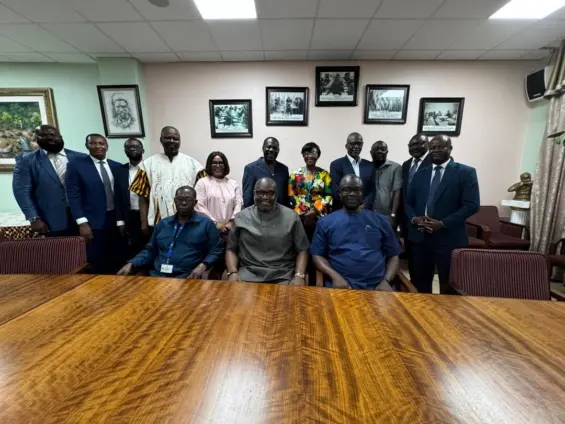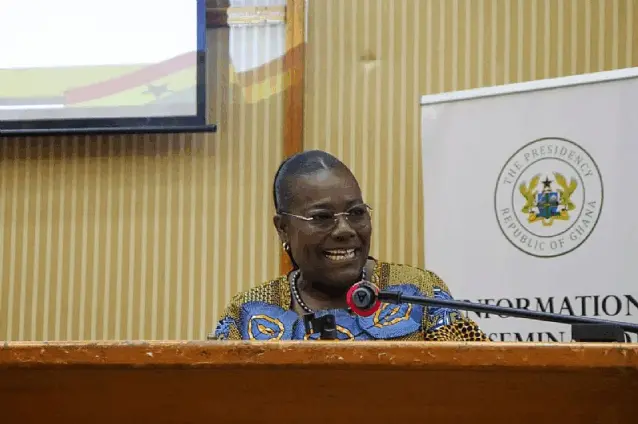Accra, Ghana – For decades, the cocoa sector has been the backbone of Ghana’s economy, a vital source of revenue and employment for millions. However, recent concerns about declining production levels and financial sustainability have prompted increased scrutiny. This was underscored by a recent visit from the Parliamentary Select Committee on Agriculture and Cocoa Affairs to the Ghana Cocoa Board (COCOBOD), the institution at the heart of the industry. The committee’s objective was clear: to gain a comprehensive understanding of the operations and, more importantly, the critical Ghana Cocoa Sector Challenges that threaten its future.
The discussions during the visit centered on several key issues: the mounting debt burden carried by COCOBOD, the alarming decline in cocoa production, the urgent need for management reforms, and the potential for a new legal framework to revitalize the sector. This report delves into these challenges, examining their root causes and exploring the solutions being considered to ensure the long-term health and prosperity of Ghana’s cocoa industry.
Key Challenges Confronting Ghana’s Cocoa Sector
Ghana’s cocoa sector, while historically robust, faces a confluence of challenges that demand immediate and strategic attention. These challenges, if left unaddressed, could have far-reaching consequences for the nation’s economy and the livelihoods of countless farmers.
Mounting Debt Burden of COCOBOD
A significant challenge is the substantial debt burden weighing down COCOBOD. This debt, accumulated over years of financing cocoa purchases and operations, has implications for the sector’s sustainability. High debt levels limit COCOBOD’s ability to invest in crucial areas such as farm rehabilitation, disease control, and farmer support programs. During the committee’s visit, COCOBOD’s CEO, Dr. Randy Abbey, addressed these concerns, highlighting the complexities of managing the institution’s financial obligations and the strategies being explored to alleviate the COCOBOD Debt burden.
Declining Cocoa Production
Coupled with the debt challenge is the worrying trend of declining cocoa production. In recent years, Ghana has experienced a noticeable drop in its cocoa output, raising concerns about its ability to meet global demand and maintain its position as a leading cocoa producer. This Cocoa Production Decline can be attributed to several factors, including aging cocoa farms, the prevalence of diseases like cocoa swollen shoot virus disease (CSSVD), and the increasingly unpredictable effects of climate change on cocoa cultivation. Addressing this decline requires a multi-faceted approach, including replanting aged farms with high-yielding varieties, implementing effective disease control measures, and promoting climate-smart agricultural practices.
Need for Management Reform
Beyond the financial and environmental challenges, there is a growing recognition of the need for management reform within the cocoa sector. Inefficient practices and a lack of transparency can hinder the sector’s ability to adapt to changing market dynamics and effectively address the challenges it faces. Streamlining operations, improving accountability, and embracing innovative technologies are essential steps toward creating a more resilient and sustainable cocoa industry.
Proposed Solutions and Policy Recommendations
In response to these pressing challenges, stakeholders are actively exploring a range of solutions and policy recommendations aimed at revitalizing Ghana’s cocoa sector.
New Legal Framework for Cocoa Sub-Sector
One of the key initiatives is the development of a new legal framework for the cocoa sub-sector. This framework aims to reposition the sector for long-term economic transformation by providing a clear and comprehensive legal foundation for all aspects of the cocoa industry, from production and processing to marketing and trade. The specifics of this framework, detailed in official COCOBOD statements, are designed to foster greater investment, promote sustainable practices, and ensure fair returns for cocoa farmers.
Pragmatic Policy Recommendations
In addition to the legal framework, the Parliamentary Committee’s visit yielded several pragmatic policy recommendations. These recommendations focus on addressing the immediate challenges facing the sector, such as providing financial support to cocoa farmers, improving access to inputs like fertilizers and pesticides, and strengthening research and extension services. The goal is to create an enabling environment that encourages cocoa production and improves the livelihoods of cocoa farmers.
Improved Management Proposals
Discussions during the consultative review session also centered on improved management proposals for COCOBOD. These proposals aim to enhance efficiency, transparency, and accountability within the organization. By streamlining operations, adopting best practices, and leveraging technology, COCOBOD can better manage its resources and effectively support the cocoa industry. Furthermore, these proposals include initiatives to promote job creation and increase youth involvement in the cocoa value chain, recognizing the importance of engaging the next generation in this vital sector.
Committee’s Commitment to Agriculture and Youth
The Parliamentary Select Committee on Agriculture and Cocoa Affairs has expressed a strong commitment to making agriculture more attractive to young people. Recognizing that the future of Ghana’s cocoa sector depends on engaging the next generation of farmers and entrepreneurs, the committee is actively exploring ways to create opportunities for youth in the cocoa value chain. This includes providing access to training, financing, and technology, as well as promoting innovative agricultural practices that appeal to young people. Dr. Godfred Seidu Jasaw emphasized the commitment to the youth population as key for a robust future.
“We are committed to creating opportunities for our nation’s youth”, said Dr. Jasaw
Conclusion
The Ghana Cocoa Sector Challenges are significant, but not insurmountable. The Parliamentary Committee’s recent visit to COCOBOD highlighted the key issues and sparked important discussions about potential solutions. By addressing the debt burden, reversing the decline in cocoa production, implementing management reforms, and creating a supportive legal and policy environment, Ghana can revitalize its cocoa sector and unlock its full potential for economic transformation and job creation. It is crucial that all stakeholders – government, industry, and farmers – work together to implement these proposed solutions and ensure a thriving cocoa industry for generations to come.
Image Source: MYJOYONLINE





















